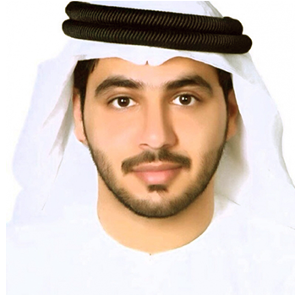Antécédents de l'affaire : Osama Al-Najjar
Le défenseur des droits humains Osama Al-Najjar a été libéré de la prison Al-Razeen à Abu-Dhabi. À l'origine, Osama Al-Najjar devait être libéré le 17 mars 2017, mais sa détention a été prolongée indéfiniment en vertu de la loi contre le terrorisme. En mai 2014, il avait été condamné à trois ans de prison en vertu de la loi contre le cybercrime, pour avoir posté des tweets jugés offensants en faveur de son père, Hossain Al-Najjar, condamné dans le cadre de l'affaire des 94 des EAU.
 Osama Al-Najjar est le fils de l'un des "UAE 94" - 94 personnes des Émirats Arabes Unis, dont des défenseurs des droits humains et des militants politiques, condamnées à des peines de 7 à 15 ans de prison pour "avoir tenté de renverser le gouvernement". Le père d'Osama Al-Najjar purge une peine de 11 ans de prison. Le défenseur militait pour de meilleures conditions de détention et diffusait sur les réseaux sociaux des informations au sujet de mauvais traitements présumés dans les prisons. Il est aussi passé à la télévision et a parlé publiquement de l'affaire des "UAE 94". Son arrestation semble directement liée à sa campagne en ligne en faveur des UAE 94.
Osama Al-Najjar est le fils de l'un des "UAE 94" - 94 personnes des Émirats Arabes Unis, dont des défenseurs des droits humains et des militants politiques, condamnées à des peines de 7 à 15 ans de prison pour "avoir tenté de renverser le gouvernement". Le père d'Osama Al-Najjar purge une peine de 11 ans de prison. Le défenseur militait pour de meilleures conditions de détention et diffusait sur les réseaux sociaux des informations au sujet de mauvais traitements présumés dans les prisons. Il est aussi passé à la télévision et a parlé publiquement de l'affaire des "UAE 94". Son arrestation semble directement liée à sa campagne en ligne en faveur des UAE 94.
Le défenseur des droits humains Osama Al-Najjar a été libéré de la prison Al-Razeen à Abu-Dhabi. À l'origine, Osama Al-Najjar devait être libéré le 17 mars 2017, mais sa détention a été prolongée indéfiniment en vertu de la loi contre le terrorisme N°7/2014 utilisée contre les personnes considérées comme des "menaces contre l'Etat".
In May 2014, human rights defender and blogger Osama Al-Najjar was sentenced to three years in prison under the Cybercrime Law for posting tweets in defence of his father, Hossain Al-Najjar, who was sentenced in the UAE 94 case. Osama Al-Najjar was charged with ‘designing and running a website on social media with the aim of publishing inaccurate satirical and defaming ideas and information that are harmful to the state institutions’, ‘offending the state’, ‘instigating hatred against the state and contacting foreign organisations and presenting inaccurate information’. Prior to his arrest, Osama Al-Najjar lobbied for detainees' rights and disseminated information regarding prison conditions and ill-treatment particularly via social media websites.
In March 2017, the imprisonment of Osama Al-Najjar was extended and he was transferred to Counselling Centre, a procedure permitted under the Counter Terrorism Law No.7/2014 against persons considered ‘a threat against the state’.
On 25 November 2014, the State Security Court at the Federal Supreme Court in Abu Dhabi sentenced human rights defender Mr Osama Al-Najjar to 3 years' imprisonment, a fine of 500,000 Emirati Dirham (approximately 109,448 Euro) and confiscation of his laptop, phone and camera. The court further ordered that Osama Al-Najjar take down his website and accounts on social media permanently. It is reported that the verdict was not read in the courtroom but rendered in the Judge's room in the absence of his lawyer. This verdict cannot be appealed.
Osama Al-Najjar is the son of one of the so-called “UAE 94” – 94 individuals including human rights defenders and political activists sentenced to between 7 and 15 years' imprisonment on charges of “attempting to overthrow the government”. Osama Al-Najjar's father is serving eleven years in prison. The human rights defender lobbied for improved prison conditions and circulated information about reported ill-treatment in detention via social media websites. He also appeared on television and spoke publicly on the case of the UAE 94. It is alleged that this arrest is directly related to his online activism on the UAE 94 case.
On 16 March 2014, Osama Al-Najjar responded, on Twitter, to remarks made by the Ruler of Sharjah during a radio interview in which he stated that families of the UAE 94 should not fill their children with hate and malice against the country. The human rights defender tweeted, “your highness, the doctor, we do not hate our country and we do not forget injustice we faced even if our mothers forgot it. Those who were unjust to my father carry 20 months of unfair jail and harassment on their conscience”. Osama Al-Najjar was subsequently arrested the following day, 17 March 2014, as he returned home from visiting his father in prison.
On 23 September 2014, Osama Al-Najjar appeared before the State Security Court at the Federal Supreme Court in Abu Dhabi for the first hearing of his trial, after more than six months in pre-trial detention on charges relating to “belonging to a banned group”, “offending and inciting hatred against the state via social media” and “passing information to foreign organisations”.
Front Line Defenders remains deeply concerned by the prison sentence and travel ban handed down to Osama Al-Najjar. Front Line Defenders considers the conviction and his treatment to be a direct result of the human rights defender's legitimate and peaceful human rights work. We urge the authorities in the United Arab Emirates to quash the conviction and release Osama Al-Najjar.
